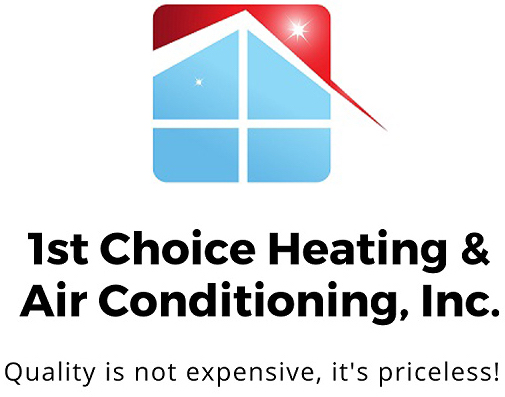
If you’re uncertain whether your Mission Viejo house has bad indoor air quality (IAQ), it possibly does.
We are indoors a lot. As a matter of fact, we’re in a building up to 90% of the time, according to the U.S. Environmental Protection Agency. And the air inside residences could be 2–5 times worse than outdoors, which could create long-term health issues.
Most Common Origins of Bad IAQ
We’ve compiled a list of the most ordinary causes of bad IAQ, the problems they make and how you can remedy these indoor air pollutants. If you’re worried about the air inside your home, we advise talking with a specialist like 1st Choice Heating & Air Conditioning about which options are a good fit for your family.
Volatile Organic Compounds
Volatile organic compounds, or VOCs, are chemicals released by common household items.
They’re found in paint and stains in addition to:
- Furniture
- Carpet
- Building materials
- Cleaning products
- Cosmetics
- Air fresheners
- Candles
When these chemicals accumulate in your home, they might irritate your eyes, nose and throat. They might also create headaches and nausea. Regardless of whether your home is in a rural or industrial area, an EPA study found indoor levels of these pollutants can be 2–5 times worse than the air outside.
Always follow the manufacturer’s guidelines when applying paint or spraying cleaning products. Unlatching a window can help fumes disappear faster.
Air purification systems can also improve your air. This equipment partners with your heating and cooling unit to enhance indoor air. When seeking one, ensure it’s specifically made to eliminate VOCs.
Dust and Pet Dander
Dust and pet dander can irritate health problems like asthma and allergies, especially when it continuously gets moved by your home’s comfort unit. While you can vacuum more routinely and get an improved air filter, an air filtration system might be a better fit.
This unit hooks to your HVAC equipment to provide strong filtration. Some kinds offer hospital-level filtration for getting rid of particles and bioaerosols.
Lasting Odors
New residences are tightly sealed to enhance energy efficiency. While this is great for your energy costs, it’s not very good for your IAQ.
Stuffy odors can stick around for a greater amount of time because your home is pulling in a smaller amount of fresh air. Since keeping your windows open throughout the year isn’t an option, here are two ways you can make your indoor air smell fresher.
An air purification system is put in your ductwork to neutralize odors before they get released again. Look for one with a carbon filter and the ability to break down dangerous VOCs. These systems can also help keep your loved ones healthy by wiping out most bacteria and ordinary allergy triggers like pollen and mold spores.
A ventilation system removes stuffy indoor air and substitutes it with crisp outdoor air. There are two types of systems (heat recovery and energy recovery), so call our professionals for more information on which solution is ideal for your residence.
Unbalanced Humidity
It’s important your residence’s humidity remains even. Air that’s too moist can cause mold, while dry air can cause respiratory concerns.
Our pros suggest 40–50% for ideal comfort. To keep yours even, think about getting a whole-home humidifier or whole-home dehumidifier with your comfort system.
Rather than having to lug a humidifier from room to room, this product delivers balanced humidity across your house.
Carbon Monoxide
Carbon monoxide is colorless gas you can’t smell. It’s caused by insufficient combustion in fuel-burning appliances, like gas heating systems, water heaters or fireplaces.
It causes a severe health risk. In low levels, it can lead to flu-like ailments like headaches and nausea. It can be lethal in heavy levels.
We recommend annual furnace maintenance to double-check your unit is operating properly. This work allows our specialists to discover problems before they get bigger, including malfunctions that can create carbon monoxide leaks.
The best approach to keep your house free of carbon monoxide is to install detectors. These alarms should be on each floor by bedrooms and living rooms.
Improve Your House’s Air Quality with the 1st Choice Heating & Air Conditioning Professionals
Aware that your home has poor air quality but not sure how to enhance it? Or unsure which product is best for you? Give our friendly HVAC professionals a call at 949-204-0859 or contact us online now. With free estimates and pro service, we’ll help you choose the right solution for your needs and budget.
